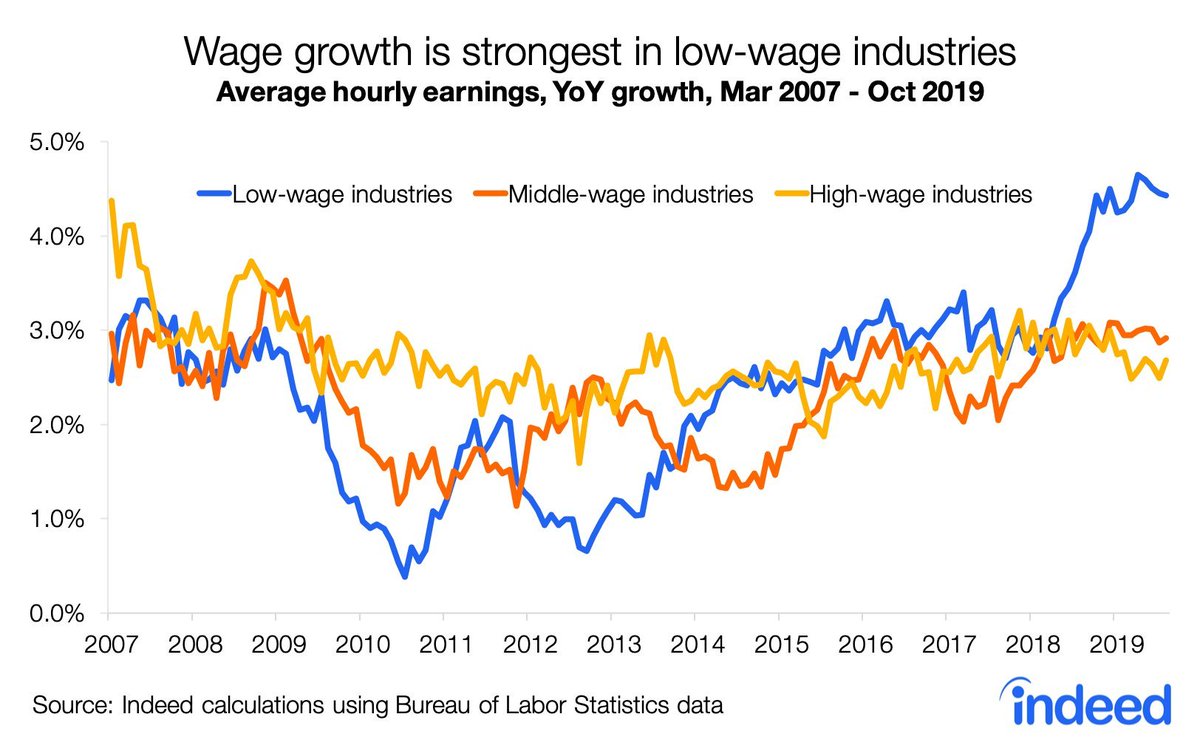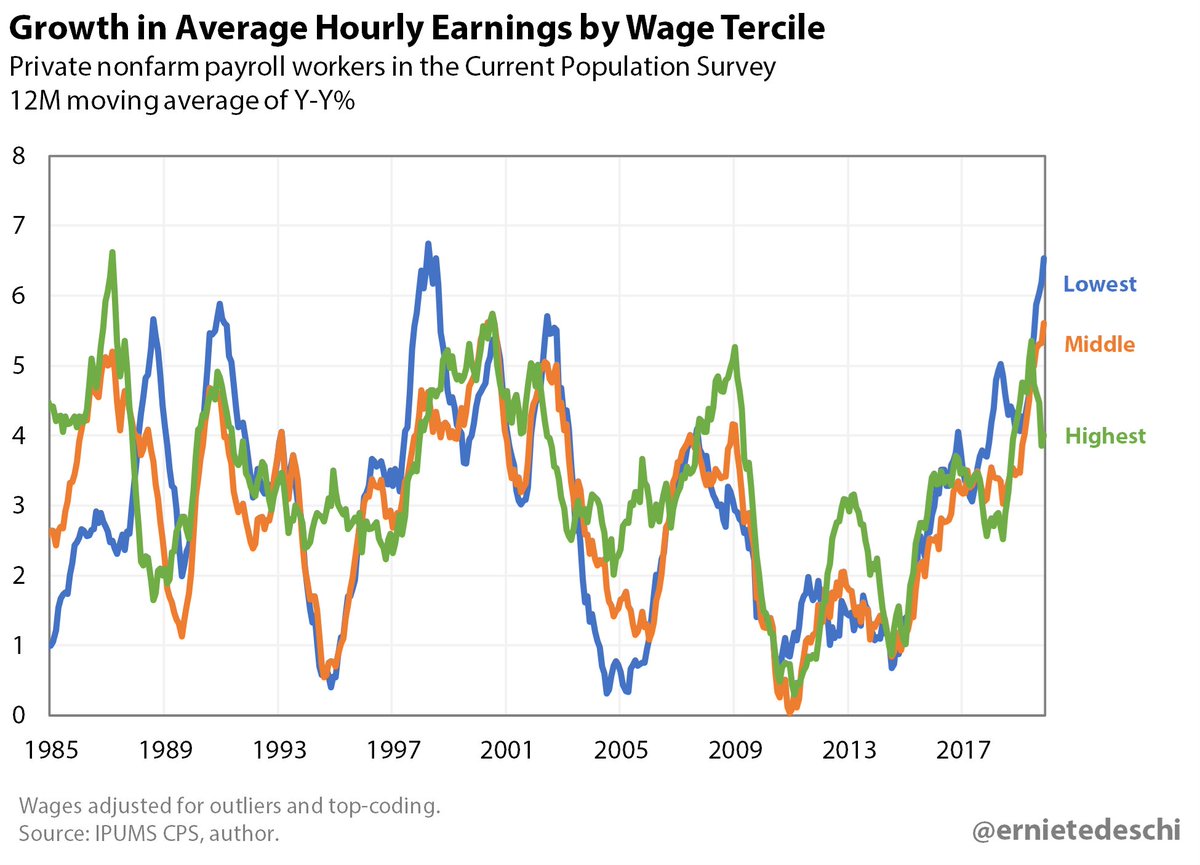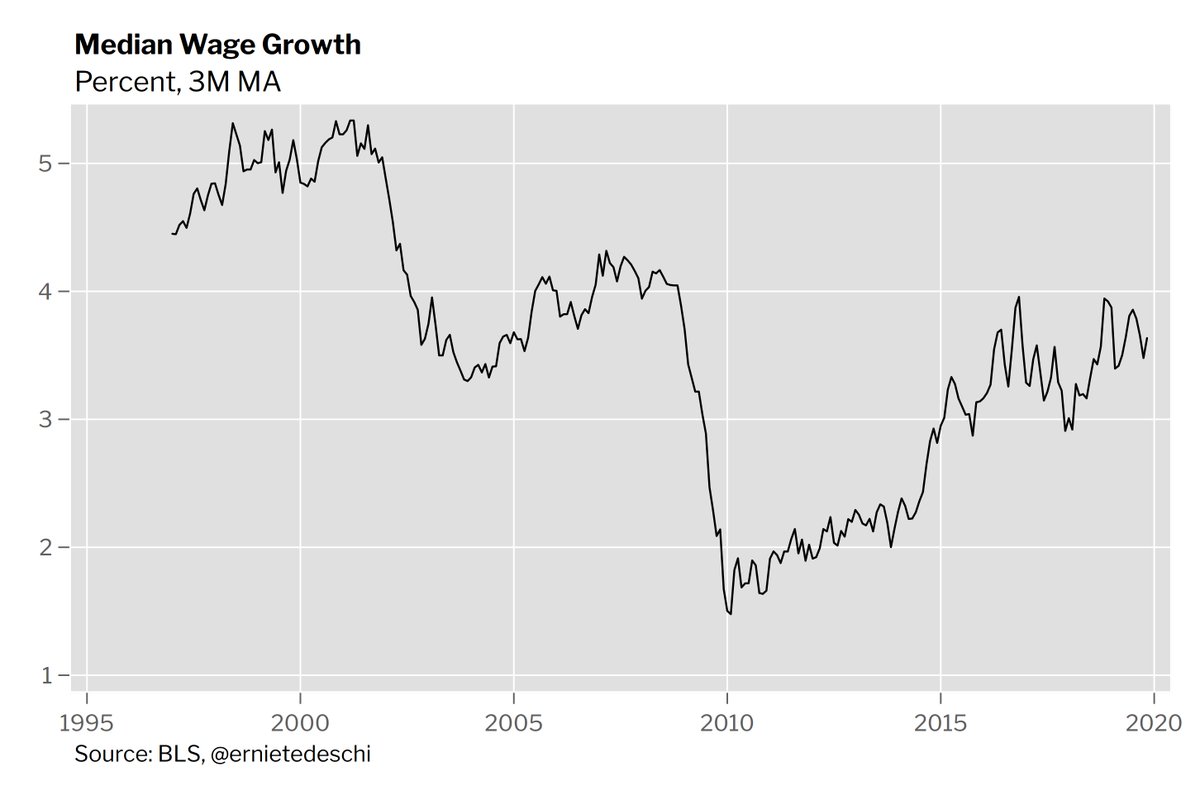wsj.com/articles/rank-…
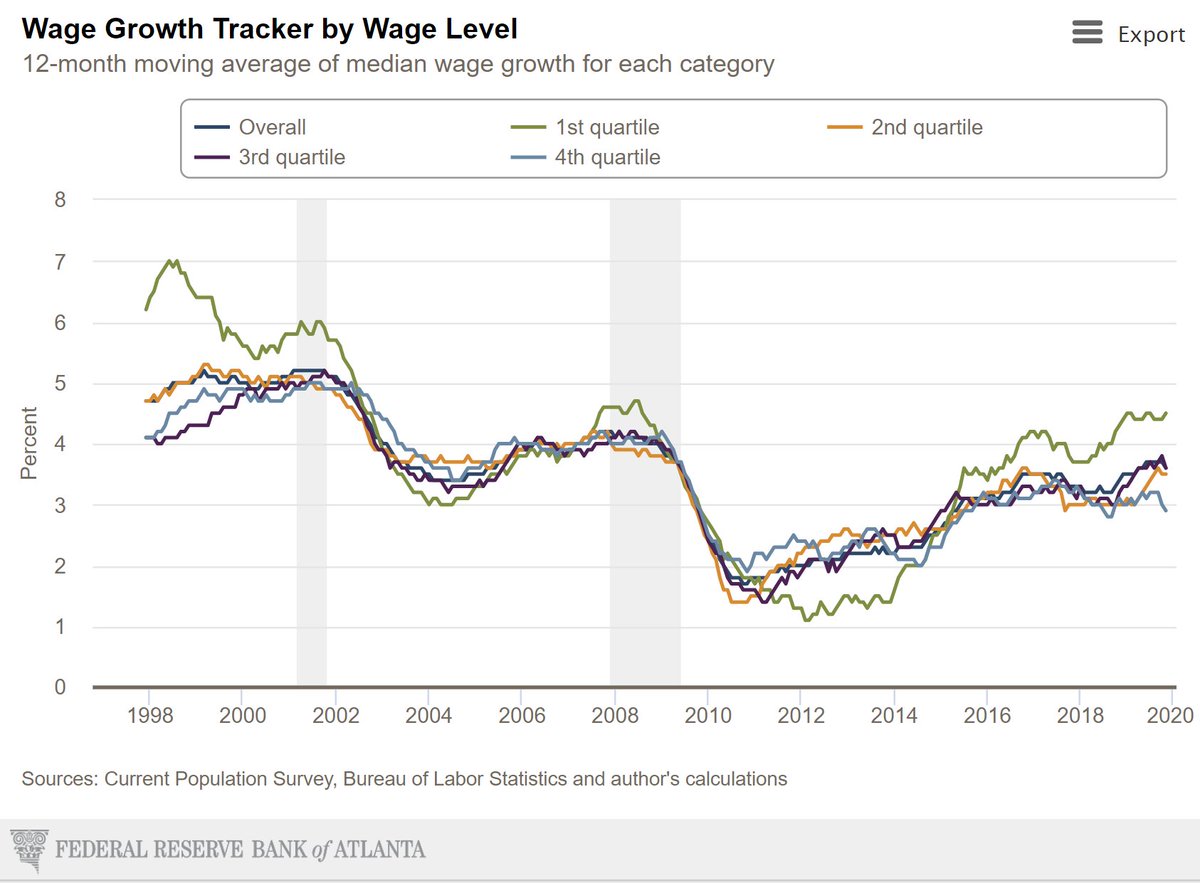
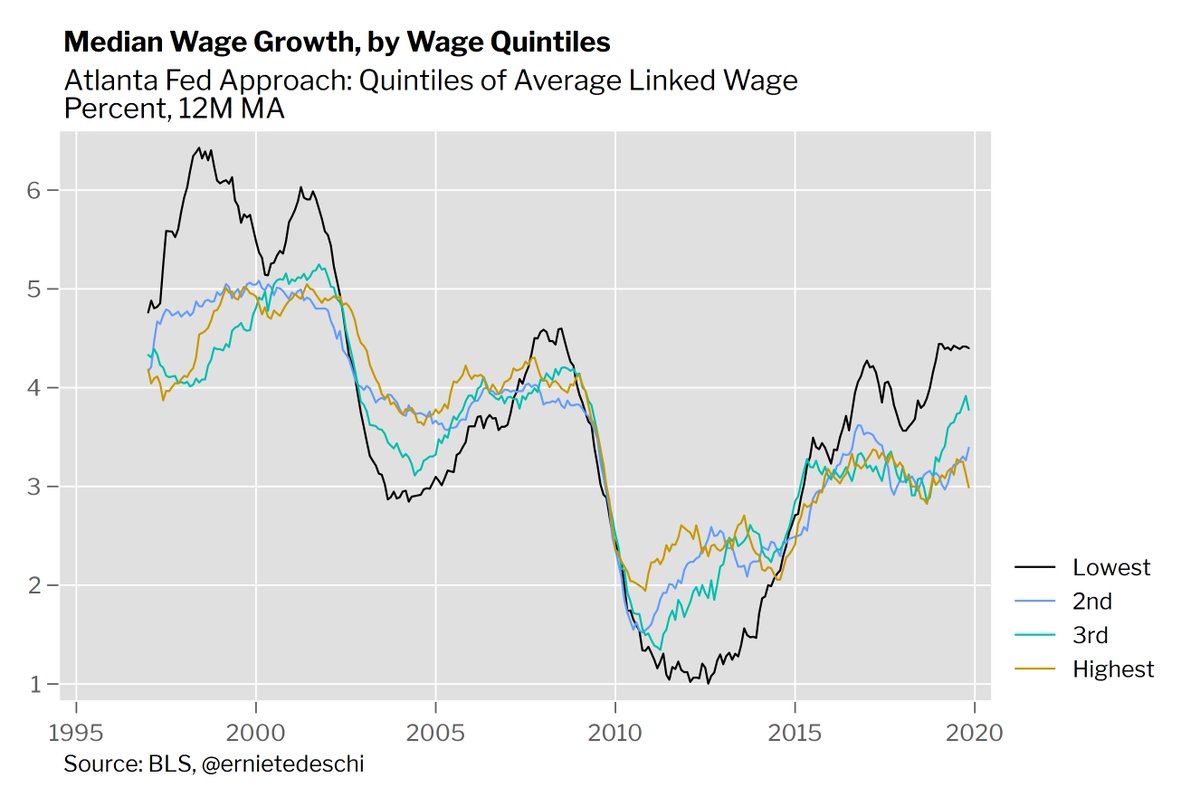
But you'd be wrong! /6
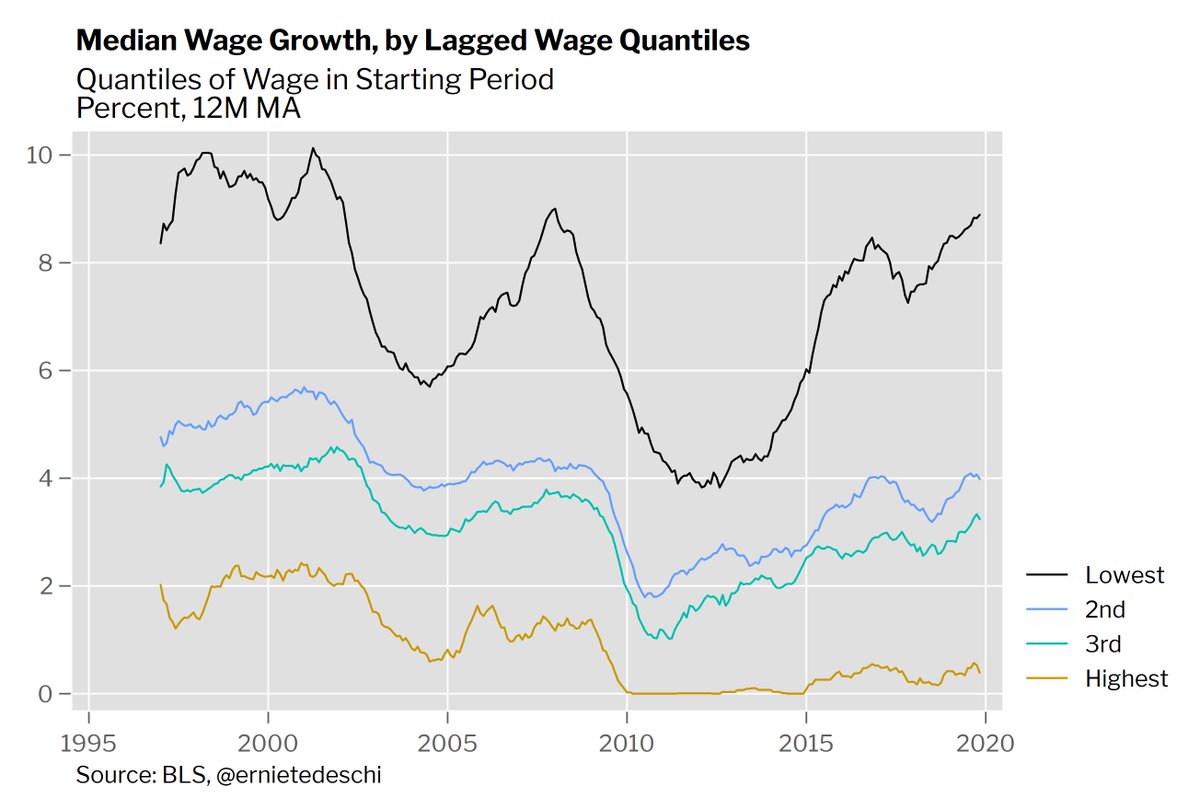
But this is an even less useful measure, because ordering workers by *outcome* necessarily penalizes workers who end up low-wage. /9
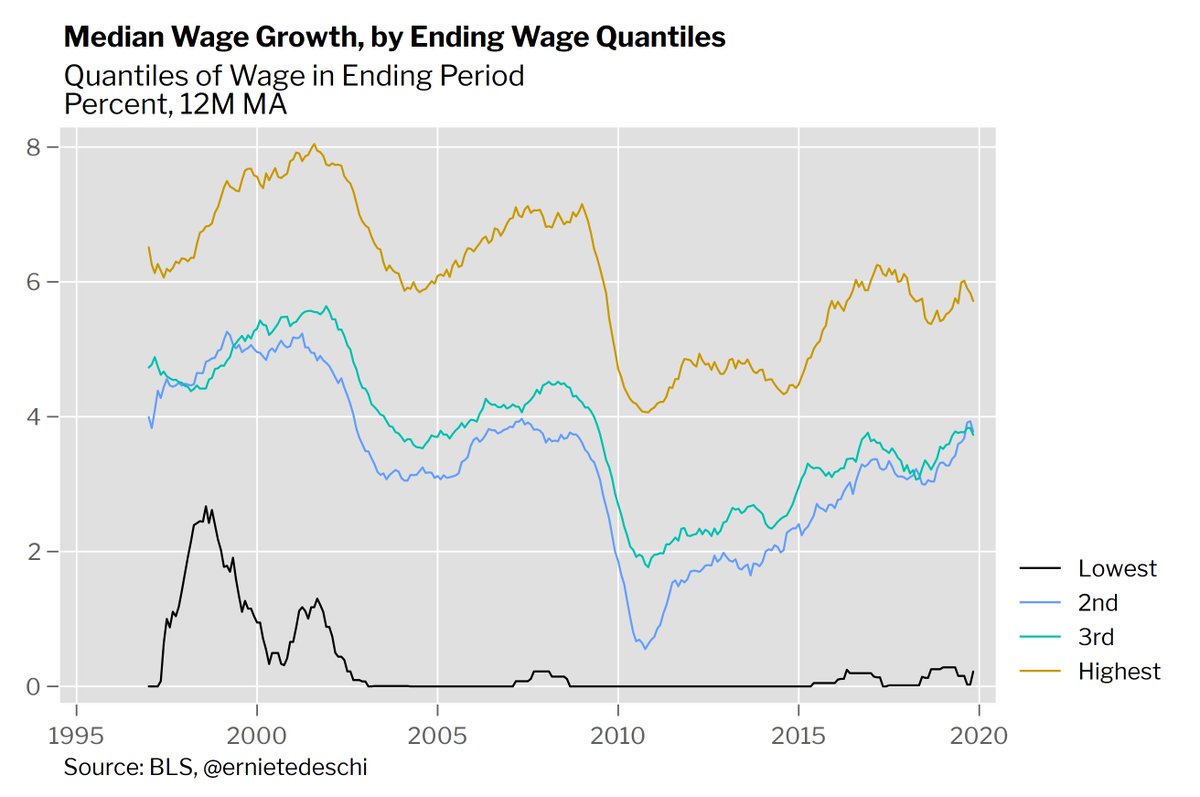
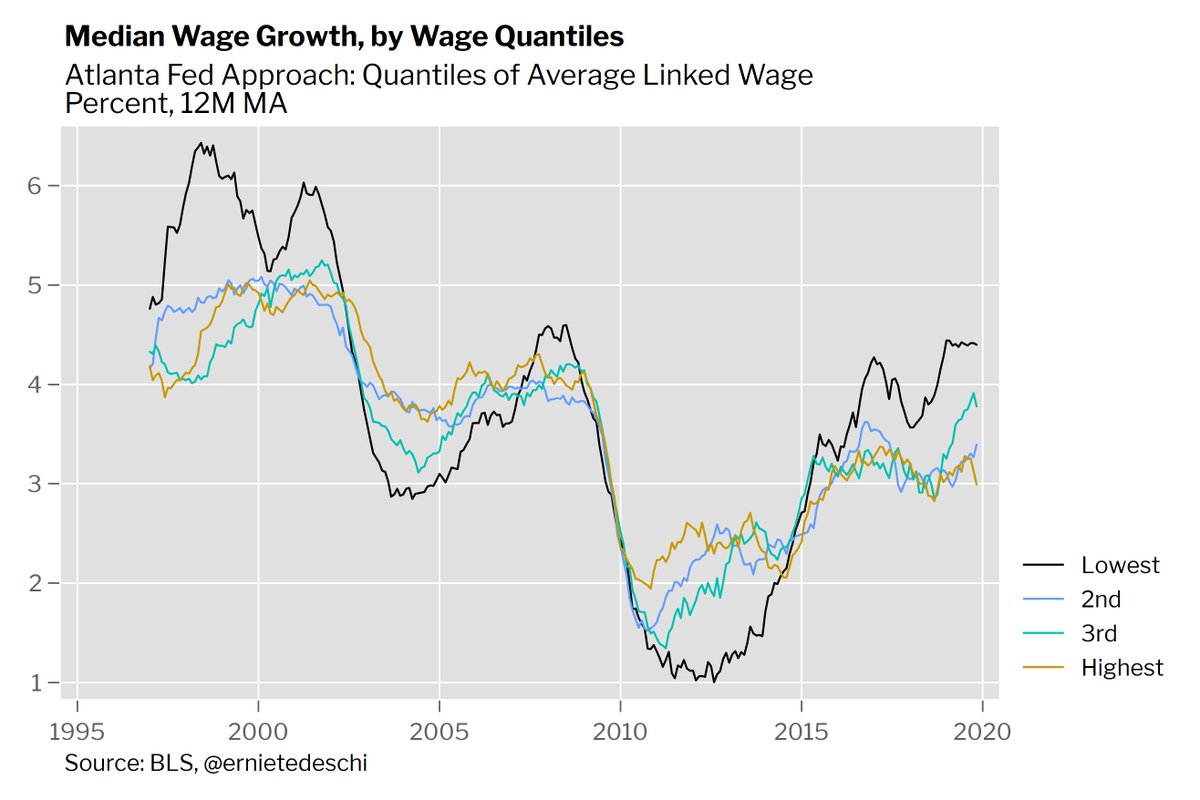
So if you ever have to bet which workers now will end up with the highest *percent* wage growth after a year, *always bet on the lowest wage workers*. /FIN
